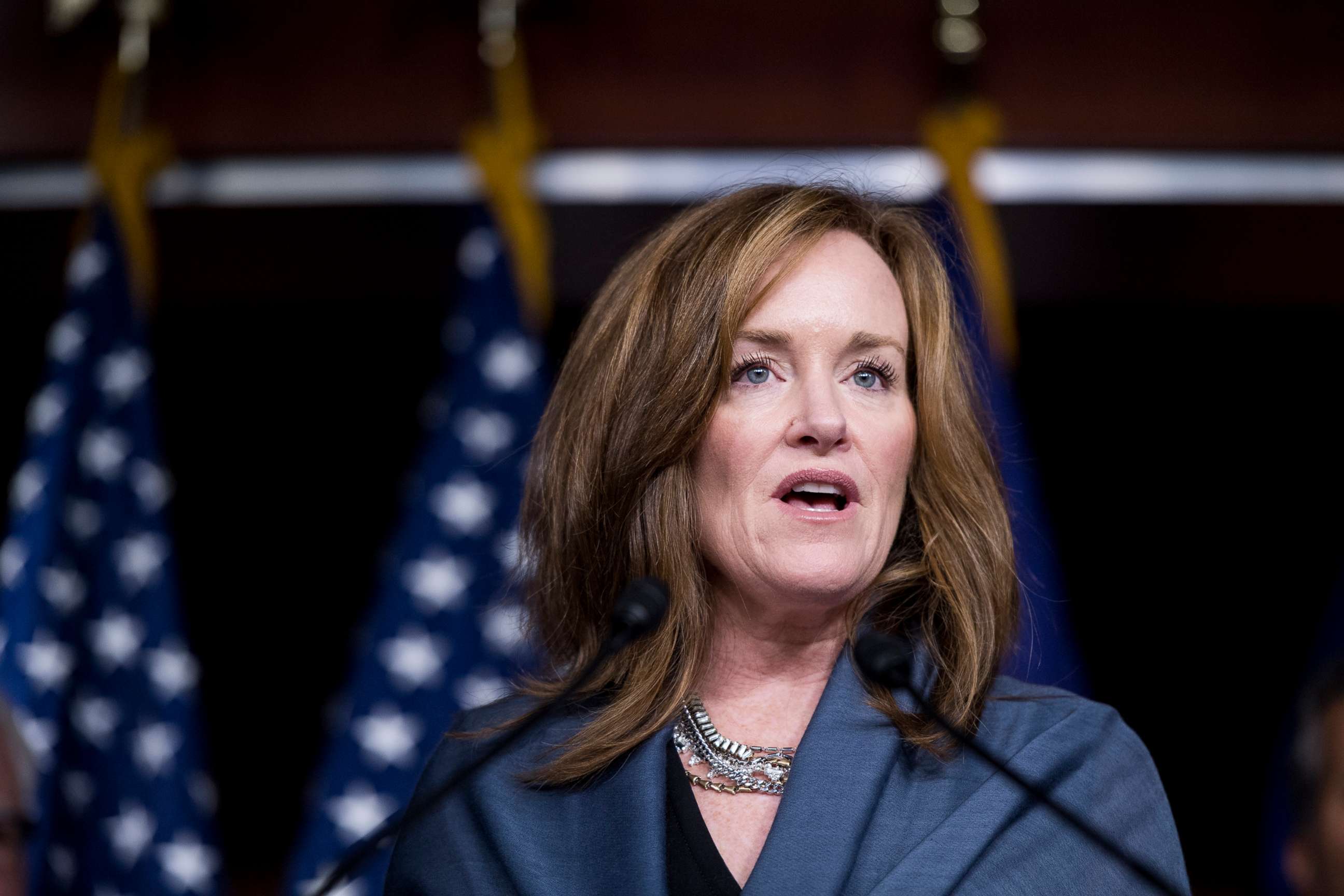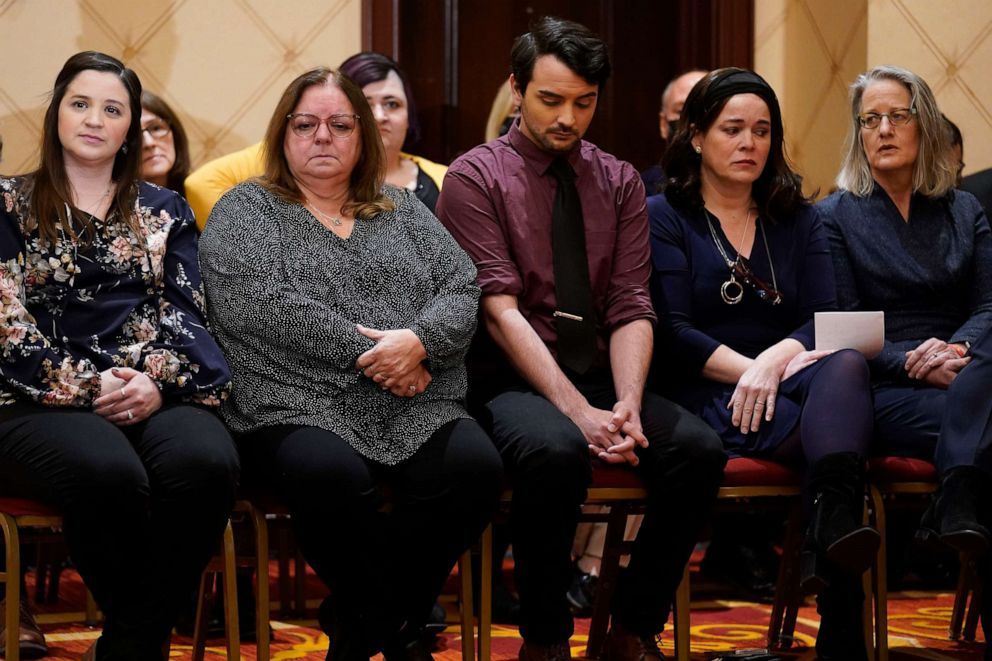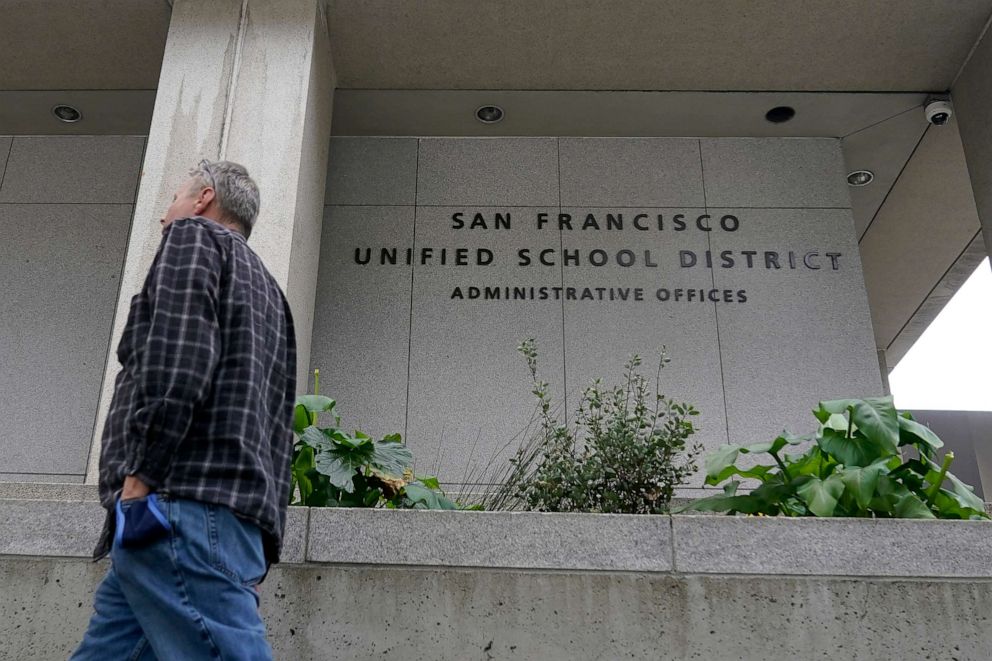Retirements, recruiting failures change landscape for both parties: The Note
Both parties will wish they had candidates they couldn't convince to run.
The TAKE with Rick Klein
You get to run an election with the candidates you have, not the ones you might have gotten.
That lesson holds for both parties in 2022, notwithstanding the historical trends and the growing consensus that Democrats are likely to face a rough midterm year.
House Democrats are having trouble holding on to their own members in historic numbers. Rep. Kathleen Rice, D-N.Y., is now the 30th Democratic incumbent to announce a decision not to seek reelection to the House. That's nearly twice the number (16) who stepped aside when the party lost the House in 2010.

Senate Republicans, meanwhile, are having ongoing trouble attracting top-tier recruits to targeted races. Popular Republican governors Larry Hogan of Maryland and Chris Sununu of New Hampshire have both passed on entering Senate races against incumbents.
Former President Donald Trump is currently doing his best to make sure Arizona Gov. Doug Ducey joins that list by staying out of his state's race despite efforts by Senate Minority Leader Mitch McConnell to entice Ducey to run. GOP retirements announced months ago are also forcing Republicans to fight to retain Senate seats in Pennsylvania, North Carolina, Ohio and Missouri.
The symmetry is peculiar enough that the party committees have practically copied each other's talking points on the topic. The Democratic Senatorial Committee last week said Republicans are passing on races because they "know they cannot defeat strong Senate Democrats"; the National Republican Congressional Committee said Tuesday that Democrats are retiring "because they know their majority is doomed."
Both of those statements could be partially true -- though, as always, the realities are more complex.
Another way to read the growing list of thanks-but-no-thanks candidates is that serving in Congress these days isn't all that fulfilling or enjoyable, whatever your party's prospects look like. It's fair to assume leaders in both parties will wish they had candidates they couldn't convince to run.
The RUNDOWN with Alisa Wiersema
Nearly a decade after the horrific shooting at Sandy Hook Elementary School, a landmark settlement marked the first time a gun manufacturer has been held accountable for a mass shooting in the United States.
As reported by ABC News' Aaron Katersky and Emily Shapiro, Remington Arms -- the gunmaker of the rifle used in the Sandy Hook shooting -- agreed Tuesday to settle liability claims from the families of five adults and four children killed in the school massacre, according to a new court filing. Remington agreed to pay the families $73 million.

In their lawsuit, the families argued Remington negligently marketed a "combat weapon" to civilian consumers and in doing so violated the Connecticut Unfair Trade Practices Act through the sale or wrongful marketing of the rifle.
Gun violence prevention advocates celebrated the milestone as an example of possible workarounds to the Protection of Lawful Commerce in Arms Act, which under federal law protects gun manufacturers, distributors and dealers from civil liability for crimes committed by those using their weapons.
"As I have repeatedly called for, Congress must repeal the Protection of Lawful Commerce in Arms Act so we can fully hold gun manufacturers and dealers accountable. But, in the meantime, I will continue to urge state and local lawmakers, lawyers, and survivors of gun violence to pursue efforts to replicate the success of the Sandy Hook families," President Joe Biden said in a statement.
The TIP with Lalee Ibssa
Voters in San Francisco have ousted three school board members in a historic recall election.
Initial reporting showed over 70% of voters in Tuesday's special election were in favor of recalling School Board President Gabriela López and board members Faauuga Moliga and Alison Collins, according to the San Francisco Department of Elections. This makes them the first San Francisco elected officials to be recalled. San Francisco Mayor London Breed, a supporter of the recall, is now tasked with appointing new members to serve until an election is held in November.

The recall stemmed from what parents said was a prioritization of social justice causes, such as renaming schools, above school reopenings. The push from parents to have more say in their kids’ education comes as national debates over issues like critical race theory and COVID-19 regulations have put a spotlight on school boards, turning them into political battlegrounds.
With school board recalls underway in Michigan, Maine and Virginia, Tuesday's success could signal a turning point for parents when it comes to academic choice. In 2022 alone, there were at least 25 school board recall efforts launched against 66 officials nationwide, according to data tracked by Ballotpedia.
NUMBER OF THE DAY, powered by FiveThirtyEight
21. That's how many billions of dollars states have spent on operation and administration so far as part of the funding allocated under President Joe Biden's 2021 COVID-19 stimulus package. They've also spent $11 billion on water and sewer infrastructure, $8 billion on broadband internet and $9 billion on infrastructure more broadly. But as FiveThirtyEight's Monica Potts writes, states have also chosen in some instances to spend the funds very differently. Read more from Monica on how states have spent their stimulus money so far.
THE PLAYLIST
ABC News' "Start Here" Podcast. Start Here begins Wednesday morning with ABC's Terry Moran on the latest from Ukraine amid escalating tensions in the region. Then, ABC's Aaron Katersky talks about the $73 million settlement with Sandy Hook families and the gun maker Remington. And, ABC's Tracy Wholf explains new reports on climate change causing both significant sea-level rise and a Western megadrought. http://apple.co/2HPocUL
WHAT YOU NEED TO KNOW TODAY
Download the ABC News app and select "The Note" as an item of interest to receive the day's sharpest political analysis.
The Note is a daily ABC News feature that highlights the day's top stories in politics. Please check back tomorrow for the latest.




